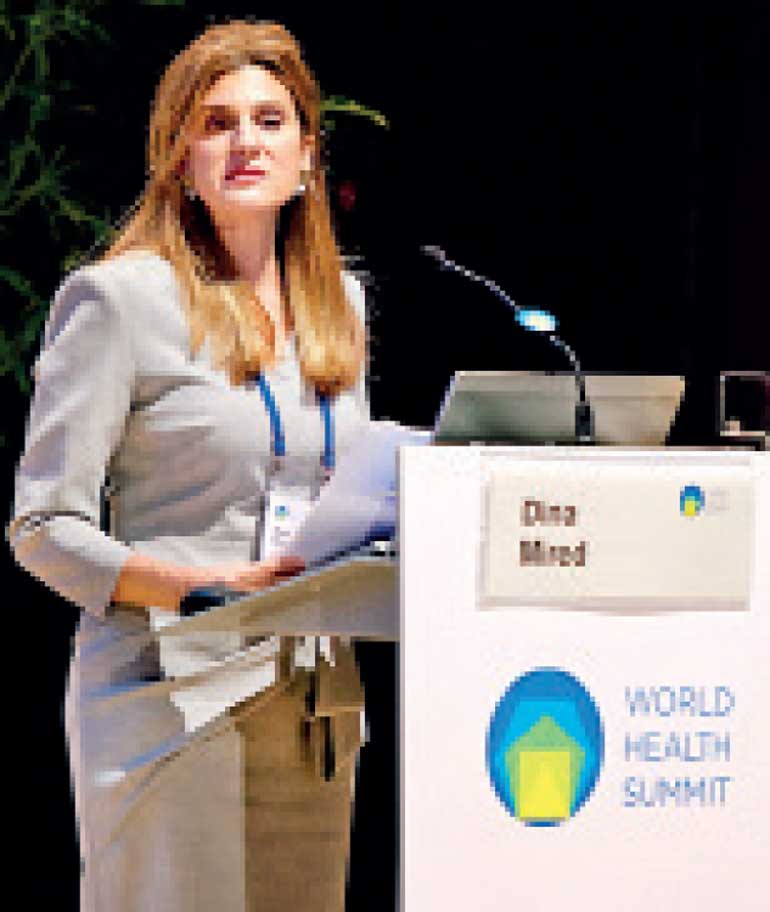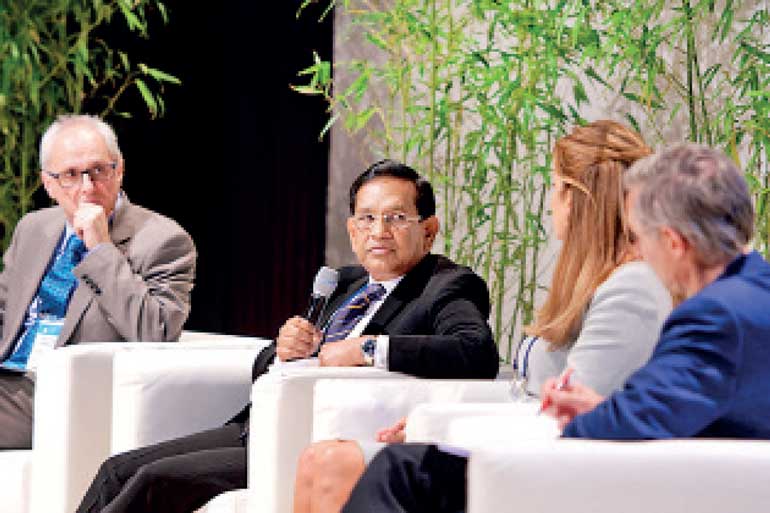Monday Feb 23, 2026
Monday Feb 23, 2026
Monday, 23 October 2017 00:16 - - {{hitsCtrl.values.hits}}
Sri Lanka’s political commitment and efforts to eradicate non-communicable diseases (NCDs) received praise at the 9th World Health Summit held from 15-17 October in Berlin.

Princess Dina Mirad of Jordan
Sri Lanka’s Minister of Health, Nutrition and Indigenous Medicine Dr. Rajitha Senaratne attended the World Health Summit (WHS), which commenced under the patronage of German Chancellor Angela Merkel last week.
The summit featured over 40 sessions and brought together stakeholders and decision-makers from different sectors, representing 100 countries.
Minister Senaratne was invited to participate in a panel discussion on ‘Non-communicable diseases’, chaired by Andres Jack - Editor of the Financial Times. During the discussion, Minister Senaratne explained the various measures that Sri Lanka has taken so far to reduce the percentage of non-communicable diseases by 2020.
The Minister said Sri Lanka has been successful in containing communicable diseases such as polio and malaria and aimed to eradicate other communicable diseases by 2020, with the exception of HIV and dengue. However, the main challenge for Sri Lanka’s health sector is non-communicable diseases since about 68% of hospital deaths were due to NCDs.

Health, Nutrition and Indigenous Medicine Dr. Rajitha Senaratne at the Summit
He said the Government has taken several actions to control non-communicable diseases, including measures to reduce tobacco use and smoking, consumption of sugar and unhealthy foods while raising awareness among the public, especially among students and women, as well as offering free health clinics and providing essential drugs at reduced cost.
The Minister said the Government seeks to bring a one-third reduction in NCDs by 2020.
Princess Dina Mirad of Jordan; Katie Dain - the CEO of NCD Alliance United Kingdom; Gauden Galez - Director, WHO Regional Office for Europe; and Stefan Oelrich - Executive Vice President Head of Diabetes and Cardiovascular GBU, Sanofi were among the other panellists.
The political commitment and strategies implemented by the Sri Lankan Government in eradicating non-communicable diseases were highly commended by the speakers and participants of the event. It was further mentioned that Sri Lanka should be considered a positive example by all member states for its successful approach in overcoming the persistent health challenges of the world.
The summit also facilitated a special session to appreciate the initiatives taken by pioneers from all continents who have developed new solutions for the critical challenges in the public health and social medicine sectors.
Dr. Kalana Maduwage - senior lecturer at the Faculty of Medicine, University of Peradeniya, presented his invention for detecting snake venom in patients’ blood at this session.
Sri Lanka’s Ambassador to Germany, Karunasena Hettiarachchi, accompanied the minister to the summit while the delegation also included Dr. Sujatha Senaratne - Private Secretary to the Minister and Dr. S. Subasinghe - Consultant to the Minister.
The Sri Lankan delegation was successful in meeting several key Government officials and representatives from the industry, who commended the positive developments in Sri Lanka in overcoming its major health-related challenges.